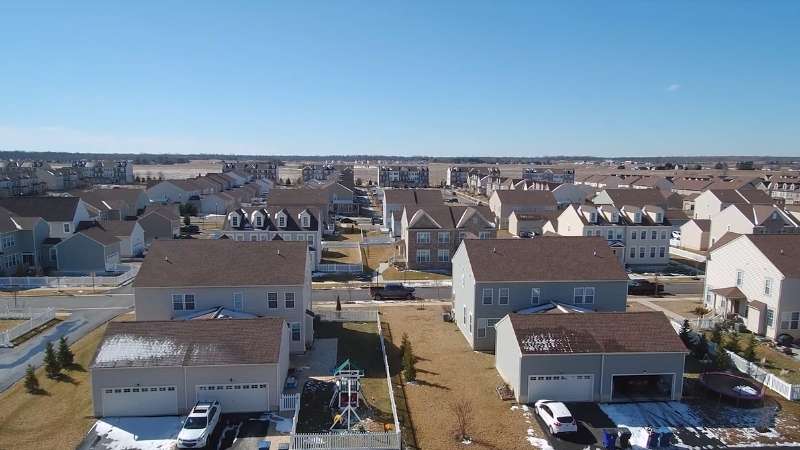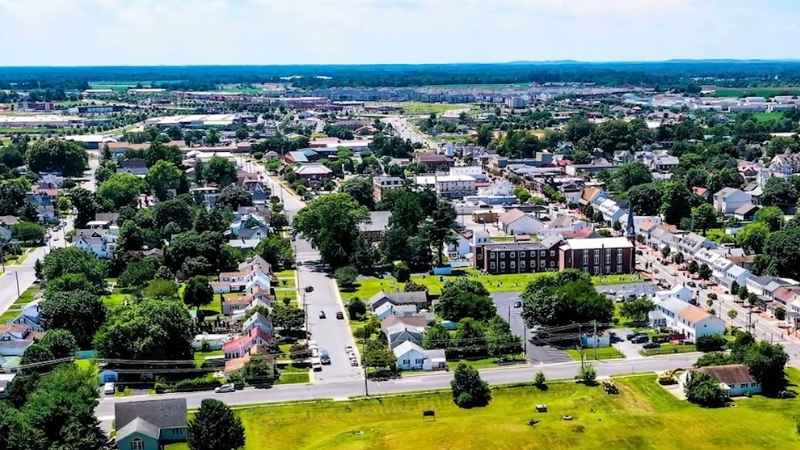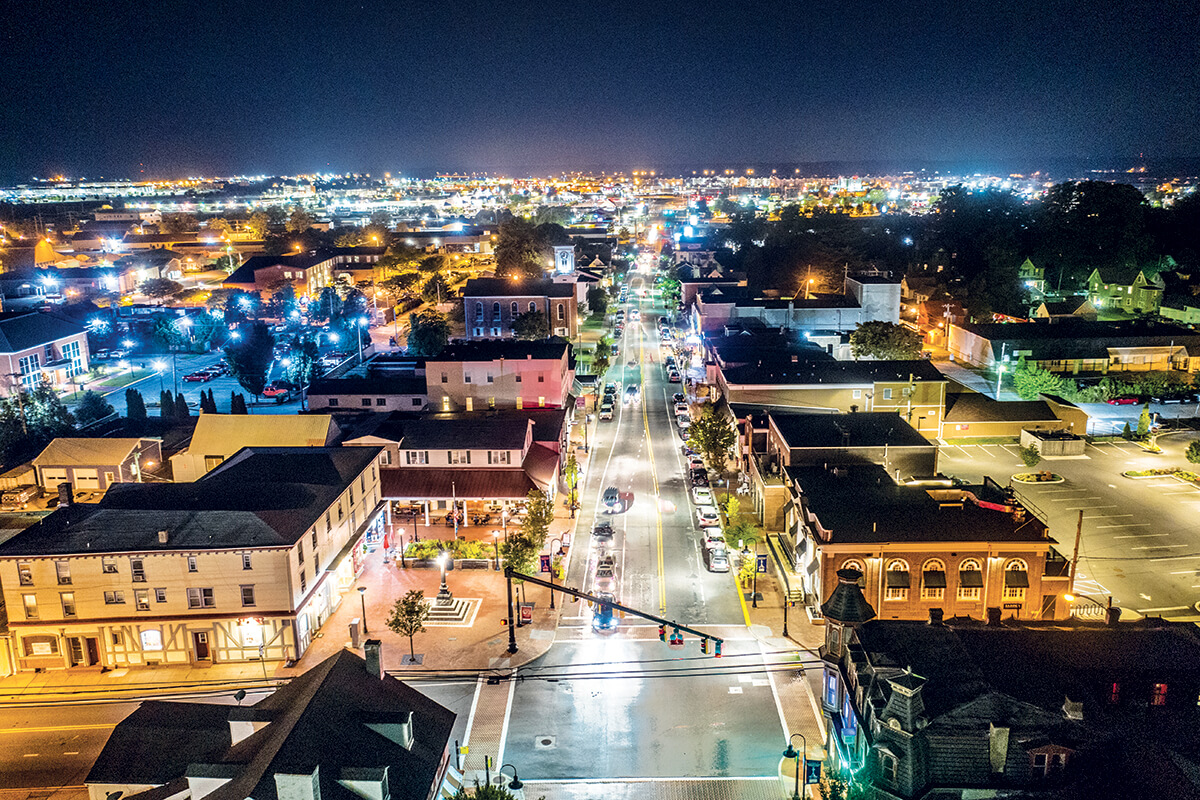Moving to a new town comes with big decisions. Middletown, Delaware, has been growing fast, attracting families, professionals, and retirees. Known for its strong job market, good schools, and expanding amenities, it offers a mix of small-town charm and modern convenience.
However, no place is perfect. Some residents love the steady growth, while others worry about traffic, rising costs, and overcrowding. Before making a move, it is important to weigh the pros and cons.
This guide will break down what life in Middletown is really like in 2025, helping you decide if it is the right place for you.
| Pros | Cons |
|---|---|
| Strong job market | Traffic congestion is increasing |
| Affordable housing compared to nearby areas | Cost of living is rising |
| Good public schools | Public transportation is limited |
| Low crime rates | Overcrowding is becoming a problem |
| Growing economy with new businesses | Commute times are longer than average |
| Expanding shopping and dining options | Green space is shrinking |
| Safe neighborhoods | Small-town feel is fading |
Jobs Keep Growing, but So Does Traffic

Population growth has been steady, with thousands of new residents moving in over the past few years. Businesses are opening, and job opportunities remain strong, but rapid expansion has led to increased congestion.
Key Industries Driving Growth
- Healthcare and Social Assistance – More than 20% of local jobs come from hospitals, clinics, and related services.
- Finance and Insurance – Banking, investment firms, and insurance providers make up a significant portion of employment.
- Retail Trade – A growing commercial sector provides jobs in stores, restaurants, and shopping centers.
Unemployment and Wages
The unemployment rate remains lower than the national average, signaling a stable job market. Salaries in major industries are competitive, but cost-of-living increases may offset some of those benefits.
Traffic and Commuting Issues
- Average commute times stretch beyond 35 minutes, much higher than many other areas.
- Public transportation remains nearly nonexistent, forcing most residents to rely on personal vehicles.
- New developments bring more businesses and jobs, but also more traffic congestion.
Home Prices Stay Reasonable, but Costs Add Up

Middletown offers a competitive housing market with home prices lower than many surrounding areas. The median home price sits below the state average, making it an attractive option for buyers. However, other costs continue to rise, creating financial pressure for residents.
Housing Market Trends
- Median home price remains affordable compared to nearby cities.
- Strong appreciation rates provide long-term value for homeowners.
- Rental prices have climbed, limiting options for those not looking to buy.
Hidden Costs That Add Up
- Property Taxes – Higher than expected for a town of its size.
- Utilities – Monthly costs for electricity, water, and heating have increased.
- Groceries and Essentials – Prices continue rising, making everyday expenses harder to manage.
Affordability Compared to Income
Middletown has a favorable home price-to-income ratio, making homeownership more accessible. However, rising living expenses offset some of the financial benefits.
Anyone considering a move should factor in both housing affordability and the increasing cost of daily essentials. Buying a home may seem like a smart investment, but long-term financial stability depends on more than just property values.
Schools Rank High, but Public Transit Fails
Middletown offers strong educational opportunities, with highly rated public schools and growing private school options. Families moving into the area often cite education as a major reason for choosing Middletown. However, public transportation remains a weak point, making school commutes and daily travel more difficult for those without personal vehicles.
Education Strengths
- Public schools maintain high academic performance and strong teacher commitment.
- Private schools provide additional choices for specialized learning.
- High school graduation rates exceed state and national averages.
Transportation Struggles
- No Reliable Public Transit – Bus and rail options are extremely limited.
- Heavy Dependence on Cars – Families must arrange transportation for school and activities.
- Traffic Congestion Near Schools – Morning and afternoon rush hours create delays.
Impact on Residents
Families benefit from a strong school system, but the lack of public transportation adds daily stress. Without reliable transit, students and workers face longer commutes and fewer transportation alternatives.
New Businesses Open, but Crowds Keep Coming
Middletown continues to attract businesses, bringing in more jobs and boosting the local economy. Shopping centers, restaurants, and entertainment venues keep expanding, offering residents more options than ever before. However, the rapid growth has led to overcrowding, with more people moving in than the town’s infrastructure can handle.
Business Growth on the Rise
- Retail, dining, and entertainment options have expanded significantly.
- More national chains and local businesses have set up shop.
- Job creation in various sectors keeps unemployment low.
Overcrowding Becomes a Problem
- New housing developments bring more people but strain roads and services.
- Traffic in commercial areas has worsened, especially during peak hours.
- Schools and healthcare facilities feel the pressure of a growing population.
Impact on Daily Life
Residents enjoy new business opportunities but face longer lines, busier streets, and increased wait times for services. Middletown’s expansion offers convenience but sacrifices the ease of small-town living.
Crime Stays Low, but Commutes Stay Long
Middletown remains one of the safer places to live, with crime rates lower than the national average. Families and retirees feel secure, with well-maintained neighborhoods and a strong police presence. However, commuting to work remains a major drawback, with long travel times and limited alternatives.
Safety and Security
- Low violent crime rates compared to state and national levels.
- Strong community policing keeps residential areas secure.
- Property crime is present but remains manageable.
Commuting Woes
- Average commute time exceeds 35 minutes – significantly longer than state and national averages.
- Public transit remains nearly nonexistent – forcing reliance on personal vehicles.
- Highway congestion worsens daily travel – especially during rush hours.
Trade-Offs to Consider
Living in a safe environment comes with the burden of long commutes. While Middletown offers security and a strong community, getting to work or nearby cities requires patience and planning.
Community Stays Strong, but Small-Town Feel Fades

Middletown has built a close-knit community where residents support local businesses, attend town events, and engage in neighborhood activities. Long-time residents take pride in the town’s friendly atmosphere. However, rapid expansion is changing the character of Middletown, shifting it away from its small-town roots.
Strong Community Bonds
- Local events, festivals, and farmer’s markets keep residents connected.
- Many neighborhoods maintain a family-friendly, welcoming feel.
- Schools and churches play a key role in bringing people together.
Small-Town Atmosphere Disappearing
- Population growth has led to overcrowding in once-quiet areas.
- Large-scale developments have replaced open land and green spaces.
- More chain stores and franchises are replacing locally owned businesses.
Middletown still holds onto its community spirit, but rapid development is changing its identity. Those looking for a true small-town feel may struggle to find it as the area continues to grow.
Entertainment Expands, but Green Space Shrinks
Middletown’s entertainment scene has improved, with more restaurants, shopping centers, and activities than ever before. Residents no longer need to travel to bigger cities for dining or leisure. However, as businesses and housing developments expand, parks and natural areas are disappearing.
More Things to Do
- New restaurants, bars, and cafes provide more nightlife options.
- Shopping centers and entertainment venues keep expanding.
- Community events and festivals continue drawing large crowds.
Less Outdoor Space
- Housing developments replace open fields and wooded areas.
- Fewer parks and recreational spaces remain untouched.
- New construction limits outdoor activity areas for families.
Weather Stays Mild, but Summers Get Hotter
Winters are manageable, and spring and fall offer comfortable temperatures. However, summers have become hotter in recent years, making outdoor activities less enjoyable.
Mild Seasonal Changes
- Winters rarely see heavy snowfall, keeping roads and schools open.
- Fall and spring offer comfortable temperatures for outdoor activities.
- Hurricane season brings occasional storms but rarely causes major damage.
Hotter Summers Bring Challenges
- Higher temperatures make air conditioning a necessity.
- Increased humidity makes outdoor activities less comfortable.
- Rising energy costs due to greater demand for cooling.
Cost of Living in Middletown, Delaware
Middletown, Delaware, offers a cost of living that is slightly above the national average.
| Expense Category | Middletown, DE | National Average |
|---|---|---|
| Overall Cost of Living Index | 104.1 | 100 |
| Median Home Value | $509,483 | $416,100 |
| Median Rent (Monthly) | $1,645 | $1,558 |
| Median Household Income | $111,482 | $81,361 |
| Utilities | 15.4% lower than national average | — |
| Groceries | 11.3% lower than national average | — |
| Healthcare | 4.7% higher than national average | — |
| Transportation | 3.3% lower than national average | — |
Note: The overall cost of living index is based on a national average of 100. Values above 100 indicate a higher cost of living, while values below 100 indicate a lower cost of living.
Last Words
Middletown offers strong job opportunities, good schools, and a safe community. Housing remains affordable compared to nearby areas, and businesses continue expanding. However, traffic congestion, higher living costs, and shrinking green space present challenges.
Anyone looking for a growing town with economic stability will find Middletown appealing. Those expecting a quiet small-town lifestyle with minimal commute times may struggle with the town’s rapid development. The decision comes down to priorities—opportunity and convenience or space and simplicity.
Middletown works for many, but not for everyone. Weigh the pros and cons before making the move.

